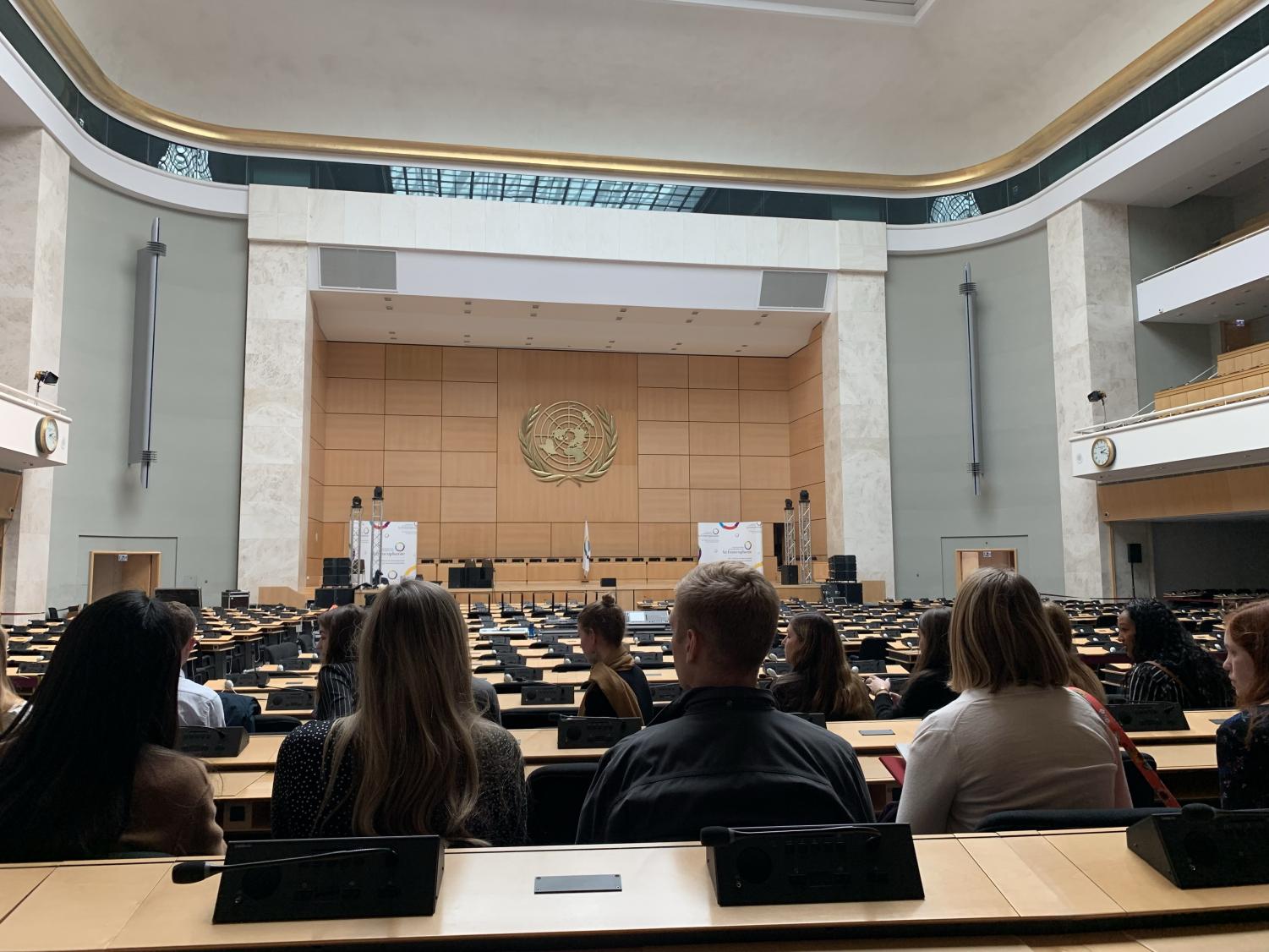
Nervous smiles. Darting eyes. Clustering in small groups. Watching new members, mainly first-years, file in nervously showing many of the aforementioned traits to meetings earlier this year was a striking reminder that I’m no longer the youngest anymore. There have been certain times this year where it’s been particularly apparent that my first-year without formal leadership roles in clubs has passed, and that I need to take up certain responsibilities as an organization leader to help guide and lead others.
This is not to say that age is always indicative of maturity; usually, guiding and leading underclassmen takes the form of class advice or club leadership. Whether it’s taking the initiative to engage with others to make them feel welcome, or being considerate of meeting times and places so first-years aren’t far away from Commons too late at night, I’ve been surprised by the many little ways upperclassmen are called upon to lead a new generation of Commodores.
In light of recent leadership adjustments and events in an organization I’m in, I’ve spent a lot of time thinking about leadership. More specifically, I’ve been thinking about how our leadership goals, style and execution should mature as we grow older. We’re all here at Vanderbilt partially because of the leadership abilities we demonstrated in high school. Whether it was being the president of student orgs, or a leader in the community, most of us are no strangers to leadership.
However, lately I’ve been questioning whether we, now college students, really understand what leadership means. Sometimes I feel like some of us are still leading at the high school level. What I mean by this, is that I think many of us haven’t learned to mature in our leadership. I’ve seen peers trying to dodge responsibilities they knowingly signed up for when they ran for executive board positions, and others failing to communicate in a professional and timely manner.
Now, you might be wondering, what is mature leadership? To me, mature leadership means taking full responsibility for your actions, decisions and the well-being of your fellow club members. Mature leadership means learning to have an unbiased, unselfish goal for your club that keeps its long-term success in mind. Mature leadership means doing everything you can to train and mentor your peers to carry on the torch and be successful after you’re gone.
Oftentimes, we strive after leadership because of the power, prestige or clout it gives us, and forget that we have also signed up to shoulder substantial responsibility for others. I’ll admit that I’ve been guilty of this, and have sometimes been hit by a much more hefty workload that I was expecting. However, leaders, even student leaders, often have to make tough calls. Sometimes these tough decisions create consequences that reverberate throughout an organization, and even an entire school. Mature leaders know not to take decisions lightly, or to make short-sighted choices that don’t consider the wider well-being of the organization.
Editors at Northwestern’s The Daily have recently come under national fire from professional journalists for apologizing for their coverage of a protest. The tough decision to apologize for their journalistic coverage or not was ultimately in the hands of the editors. The paper’s editor-in-chief, who was one of many editors who signed off on this decision, was called out by name in the article.I’m not using the editors at The Daily as an example of bad leadership per se, but rather to stress the fact that leaders in student organizations have real responsibilities that can affect not only their schools, but the fields they are exploring. In one of my clubs, I’ve felt like a bad leader for being inevitably tangled up in some similarly tricky, debatable decisions that I did not fully support. When these decisions seemed to harm rather than help, I felt guilty, and that I had failed my team members, especially the first-years.
The event at The Daily and my own recent experiences were a great reminder for me. They reminded me that our decisions as student leaders can have a significant effect on the reputation and success of the organizations we lead, and that we will be held accountable for the choices we make. I hope that you’ll take the time to reflect on whether your leadership has evolved and matured in college as we near the end of yet another semester. We could all use strong, empathetic, selfless, caring mature leaders. I’m hoping you’ll become one of them.




